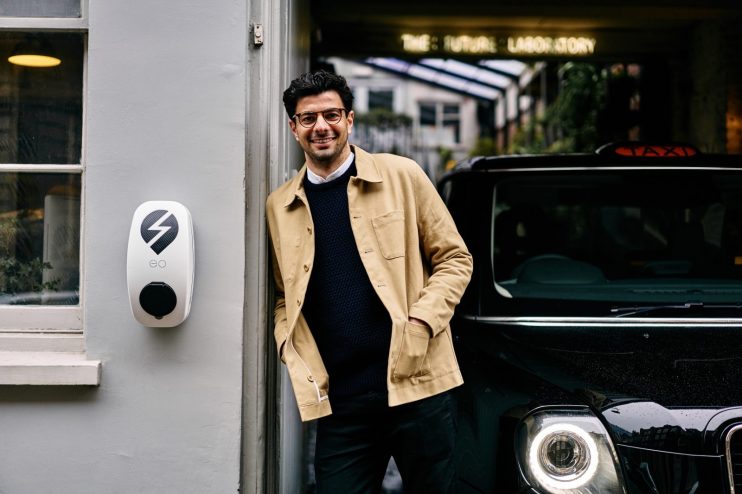Corona Impact Series: How an EV charging company in Shoreditch was powered up by a policy change mid-pandemic

In this series, City A.M. looks at the financial and economic impact of the ongoing pandemic on a range of small and medium-sized businesses across London. This week: How an electric vehicle charging startup in East London was made future-proof by government policies that were introduced at the height of the pandemic.
“When the first national lockdown hit, there were definitely a few sleepless nights,” says Charlie Jardine, founder and CEO of electric vehicle charge point developer EO Charging (EO).
“Overnight, customers froze their orders. Engineers couldn’t get out to install charge-points so the home charging market in particular suddenly disappeared,” tells the 30-year old Suffolk native in his office in Shoreditch.
Fast forward to the start of 2021 and Jardine is in a resilient mood. “I think while businesses were initially in survival mode, quite quickly lockdown gave them time to reflect and accelerate longer-term strategies.”
As with most business owners, the early days of the pandemic were an unknown quantity for Jardine. It was time to pause and reflect, particularly after five years of non-stop growth.
EO’s story starts in 2015, when Jardine quit his job as marketing manager and set up his company at the age of 24. Since then it has gradually grown to become a mature player in the UK’s EV charging sector.
Predominantly focused on the fleet market that accounts for 59% of vehicles on UK roads, it has built a client base that includes the likes of Sainsbury’s, Ocado and DHL, and recently sold into its 30th market around the world.
Major boost
The Government’s renewed commitment to EV technology, announced in November, gave EO a major boost. Boris Johnson announced that a ban on petrol and diesel vehicles was to be brought forward to 2030, and further support and incentives for EV uptake were introduced as part of the government’s drive to ‘build back better’.
“The government announcement was definitely a game-changer,” says Jardine. “It rubber-stamped the electric future of the automotive industry in this country.”
For fleet owners, Jardine calls the ban “a powerful motivator” to see that petrol and diesel will not be an option in less than a decade, that charge-point infrastructure is being funded, and that there are financial incentives for going electric.
“We could sense the impact immediately and this will undoubtedly be a big driver of growth for us,” he adds.
As a result, 2020 saw EO more than triple its revenues and double its staff numbers to 90. Despite being in the heart of a third national lockdown, Jardine is powered up for the year ahead.
Delivery sector
One industry whose success EO has benefited from during Covid-19 is the delivery and logistics sector, with online shopping and home delivery at an all-time high, particularly in densely populated London. Businesses operating home delivery fleets have performed very well and consequently many are looking to grow their fleets.
In doing so, they are looking to EVs, stresses Jardine, citing recent data from the Society of Motor Manufacturers and Traders (SMMT) that electric van sales were up 64 per cent in 2020 year-on-year. Many parcel delivery companies – such as DHL, Hermes and DPD – have already introduced large numbers of electric vehicles into their fleets.
“Delivery businesses are very serious about electrifying their fleets. They know that new rules are coming into force in a few years, and they want to future-proof their fleets now,” Jardine explains.
Another theme of the pandemic is the success of businesses that have superior digital offerings than their competitors, across all sectors, from banking to media. The vehicle charging market is no exception, and he believes another key to success is to firmly focus on the digital technology side of his business.
Jardine, who was one of Forbes’ 30-under-30 in 2019, believes EO’s current and future growth stems from its evolution into a full solutions provider, providing Software as a Service as well as ongoing operations and maintenance contracts.
With EO’s DNA so in tune with the sustainability and digital zeitgeist, it’s hard to disagree with him.
“The future looks really positive, but I’m not getting carried away. I’m aware that in many ways the pandemic has been kinder to us than most, but if we’re going to deliver our ambitions it’s going to rely on us executing our strategy, not on external factors,” Jardine says in conclusion.